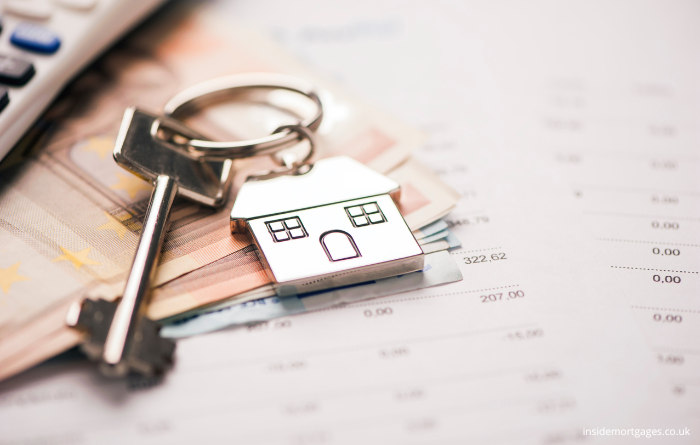What Happens If Mortgage Valuation Is Higher Than Purchase Price?
What happens if your mortgage valuation is higher than the purchase price of your new home?
Good news – if the property you are buying is valued by your mortgage lender at a higher price than you’re paying, they will be happy to lend you the funds. In fact, you might even find that you have a lower Loan-To-Value (LTV) ratio, which could reduce your mortgage payments.
In this article, we’ll tell you everything you need to know about getting a mortgage valuation that’s higher than the purchase price, including how it could affect your mortgage application.
What Is A Mortgage Valuation?
A mortgage valuation is a report compiled by a professional valuer that estimates the market value of a property. It’s different to a survey (which we’ll talk about later), as its main purpose is to help the mortgage lender assess the risks involved in lending you money.
Mortgage valuations are usually carried out by Chartered Surveyors who have been appointed by the lender. The valuer will visit the property and carry out a number of checks, including:
- The condition of the property
- The size and layout of the accommodation
- The location of the property
Once the valuer has finished their inspection, they will compile a report that contains their estimate of the property’s value. This will be based on recent sales of similar properties in the local area.
Do I Need A Survey If I’ve Had A Mortgage Valuation?
Most mortgage lenders will require you to have a mortgage valuation carried out as part of the application process. However, it’s important to remember that a mortgage valuation and a survey are two different things.
A mortgage valuation is primarily for the benefit of the lender, whereas a survey is for your benefit. A surveyor will carry out a more in-depth inspection of the property and will look for any potential problems that could affect its value or cause you issues in the future.
We would always recommend that you have a survey carried out, even if your mortgage lender doesn’t require it. It could end up saving you a lot of money in the long run.
What Happens If My Mortgage Valuation Is More Than The Purchase Price?
If your mortgage valuation is higher than the purchase price, it’s generally good news. It means that the property is worth more than you’re paying for it, which gives you a bit of extra security.
It also means that you have a lower LTV ratio. This is the amount you’re borrowing as a percentage of the property’s value.
A lower LTV ratio could mean that you qualify for a lower interest rate on your mortgage, as you’re seen as being less of a risk to the lender. It could also mean that you’re able to take out a smaller mortgage, which would reduce your monthly payments.
Of course, it’s important to remember that a mortgage valuation is only an estimate of the property’s value. It’s not a guarantee that you’ll be able to sell the property for more than you paid in the future.
What Happens If My Mortgage Valuation Is Lower Than The Purchase Price?
If your mortgage valuation is lower than the purchase price, it doesn’t necessarily mean that you won’t be able to get a mortgage. However, it could make the process more difficult.
The main issue is that you’ll have a higher LTV ratio. This means that you’re seen as being more of a risk to the lender, as there’s a chance that you could end up owing them more money than the property is worth.
As a result, you might find it more difficult to get a mortgage, or you might have to pay a higher interest rate. You might also find that you’re only able to borrow a smaller amount of money, which would increase your monthly payments.
If you’re worried about your mortgage valuation, the best thing to do is speak to your mortgage lender. They’ll be able to give you more information about how it could affect your application.
In some cases, the lender might be willing to lend you the money if you have a larger deposit. They might also be willing to accept a lower LTV ratio if you’re able to provide evidence that the property is worth more than the valuation.

Can You Renegotiate A House Price After Valuation?
If you find that the property you’re buying is not worth as much as you’re paying for it, you may be able to renegotiate the price. To do this, you’ll need to liaise with the seller, either directly or through the estate agent to find out whether they are willing to accept a lower price for the property.
However, it’s important to remember that the seller is not obligated to lower the price, even if the mortgage valuation is lower than the agreed purchase price.
If you’re unable to reach an agreement with the seller, you may have to walk away from the deal.
When Should I Get A Mortgage Valuation?
Ideally, you should get your mortgage valuation booked in as soon as you have an offer accepted on a property. It can take up to four weeks for a mortgage valuation to be carried out, so booking it in sooner rather than later can help to speed up the process.
Is Mortgage Based On Value Or Purchase Price?
The amount you’re able to borrow for a mortgage is based on the property’s value, not the purchase price. However, it’s important to remember that the mortgage valuation is only an estimate of the property’s value.
It’s possible for the property to be valued lower or higher than the purchase price, depending on a number of factors.
If you’re concerned about your mortgage valuation, the best thing to do is speak to your mortgage lender for more information.
What If The Bank Valuation Is Higher Than My Offer?
If the bank valuation is higher than your offer, it means that you have a lower LTV ratio. This is the amount you’re borrowing as a percentage of the property’s value.
A lower LTV ratio could mean that you qualify for a lower interest rate on your mortgage, as you’re seen as being less of a risk to the lender.
It could also mean that you’re able to borrow a larger amount of money, which would reduce your monthly payments.
Of course, it’s important to remember that a mortgage valuation is only an estimate of the property’s value. It’s not a guarantee that you’ll be able to sell the property for more than you paid for it.
What If The Mortgage Valuation Is Lower Than My Offer?
If the mortgage valuation is lower than your offer, it means that you have a higher LTV ratio. This could make it more difficult for you to get a mortgage, or you might have to pay a higher interest rate.
You might also find that you’re only able to borrow a smaller amount of money, which would increase your monthly payments.
In Summary
If your mortgage valuation is higher than the purchase price, it could give you a lower LTV ratio and potentially lead to a lower interest rate on your mortgage. However, it’s important to remember that a valuation is only an estimate of the property’s value.
We hope that this has answered the question ‘what happens if mortgage valuation is higher than purchase price’.

